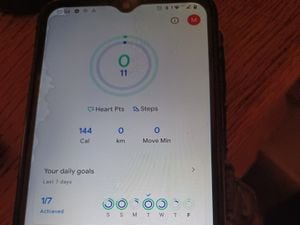West Midlands Ambulance Service took nearly 11 hours to reach patient during 'Beast from the East'
West Midlands Ambulance Service took nearly 11 hours to reach a patient when the 'Beast from the East' hit the region, new figures show.

A BBC investigation has revealed the longest delays by ambulance services in the UK between June 2017 and June 2018.
Ambulance trusts said the delays were linked to the busy winter period and resources were prioritised for life-threatening emergencies.
In the WMAS area, the five highest wait calls – which were for less serious injuries – were over or around 10 hours.
The highest wait time was 10 hours and 47 minutes for a 50-year-old man with a head injury.
WMAS spokesman Murray MacGregor said three of the five calls had happened when the 'Beast from the East' hit the region and caused widespread disruption across the region earlier this year.
He said the other two calls had been taken during inclement weather in December and March and all of the five calls related to patients with less serious injuries.
Mr MacGregor said: "It's never good for anyone to wait 10 hours.
"We always try to get to every call as soon as possible.
"The Beast from the East made that very difficult.
"The types of calls waiting that long were someone with pain in their legs and someone with a minor injury after a fall, these are clearly cases which were not life threatening.
"It's right and proper we focus on the life threatening calls first and foremost."
He said WMAS was the only ambulance trust in the country exceeding all its statutory targets, adding: "Unless there's an exceptional reason we are getting to the calls that matter much more quickly than before and that is saving lives."
He said in cases where people are not in life-threatening situations, people should call NHS 111 in the first instance as an ambulance can still be dispatched if required.
According to the BBC investigation, the longest delays in the UK were recorded by Welsh Ambulance Service, which kept four patients waiting for more than 50 hours.
Between June 2017 and June 2018, ambulances from four services took 24 hours to reach patients, including some with breathing and mental health problems.
Most ambulance services also reported achieving the national target of responding to the most serious type of call in an average of eight minutes or less.
The new figures, obtained by a freedom of information request, also show that between 2015 and 2017, the total number of calls received increased by 15 per cent.
In 2015, UK ambulance services received 8,892,346 calls, which rose to 9,891,559 in 2016 and 10,242,507 in 2017.





